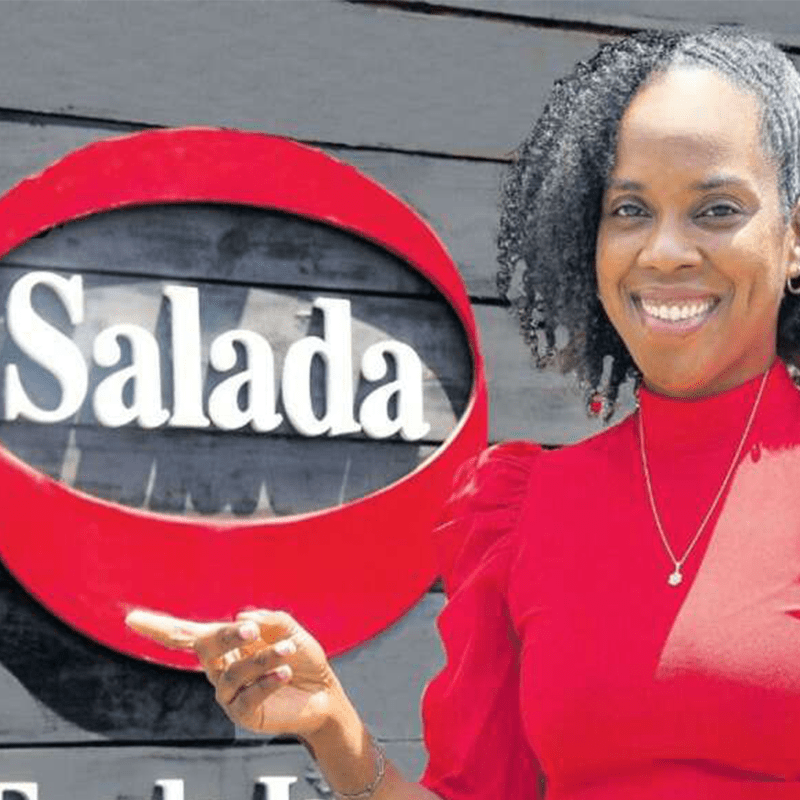‘Give us a seat’

Salada boss calls for collaboration on growing coffee industry General Manager of Salada Foods Tamii Brown said her company is refocusing to push its products deeper into both the local and export market, but said that ambition is stifled by inadequate supply of coffee from farmers in Jamaica. Salada Foods processes mostly coffee but has branched out into ginger and ginger-turmeric products. Brown, who did not offer a growth target either locally or internationally for her company’s products, citing that “it is more complex than that”, however said if she is to attain the potential of Salada Foods the company must have a seat at the table of decision-makers when policies are developed for the coffee industry. “When we talk about the fact that Salada and Jamaica are actively looking at improving our exports…we have to look at where our export growth is going to come from,” Brown told the Jamaica Observer in an interview last week. “You cannot break into export without having a product that is competitive on a global scale. You can’t come in and say, ‘Because I have a Jamaican stamp on a product… all consumers are going to come and rush to it and be able to pay a premium price.’ No, consumers are more discerning that,” she continued. She explained that with the regulators stipulating that at least 30 per cent of all coffee blends must have Jamaican coffee, whether high mountain or Blue Mountain, the company is stifled because the quantities are not available. “How do processors survive in the medium term when regulations are put in place that cannot be complied with?” she asked rhetorically. “I think that we need to operate just like all other industries. In the immediate term we need to look at some supplementing of supplies…,” she continued. “There are times where — maybe because of inconsistency of supply, maybe because of straight out unavailability of supply — it becomes very challenging for processors to meet that requirements.” Brown, however, said she is not calling for any wholesale opening up for coffee imports, but is looking for collaboration in terms of the solution. “We want a seat at the table. As the only processor of instant coffee in the island, what we want our regulators [to do] is point us in the direction [of a solution]. Salada Foods is a guaranteed purchaser of coffee in Jamaica.” he said the long-term solution is growing more coffee, pointing out that her company has engaged farmers through the Jamaica Coffee Growers Association to help to boost yields. For now though the company is engaged in innovation, developing new products, and targeting new markets. At 65 years old Brown said it’s very easy for companies like Salada, which have legacy brands and mature brands, to get comfortable and complacent. “However, you have to remember: Just like how time evolves, you have a target consumer base that also evolves — and if we as a company don’t keep up to date with that evolution, the company will not swim. And I think that sitting in the seat as general manager, that reality has really come to the fore. What will Salada have to do now to safeguard the next 65 years?” To swim, the company has been innovating with the introduction of new products. At the height of the COVID-19 pandemic it introduced ginger powder and ginger-turmeric powder to the portfolio. Brown said both did well and continue to do well, with Jamaicans getting more health conscious. The company also added flavoured coffee to the line-up with the introduction of coconut cappucino, caramel, and cinnameg coffees to cater to the tastes of a new generation. “We have some new things coming out very shortly,” she said but declined to tell the Business Observer what those products are. Turning to growth, she continued, “You can grow it by adding new products but then you also grow by filling in the distribution holes, so that’s kind of where we are for the domestic market.” Brown also declined to give a breakdown of the share of Salada’s products which are exported versus how much remain in the domestic market, though she admitted the domestic market accounts for “the lion’s share of sales”. “What we’re doing this year, which I will share with you, is that we are looking at the Caricom footprint, just trying to keep close in our neighbourhood, and we have been making some significant breakthroughs as it relates to our current progress.” Brown said the company’s products are “barely in Caricom”, adding, “We were previously in a few markets. You would find us in British Virgin Islands, you would find us in Bermuda and Cayman, [but] they were just sprinklings. We never took it on aggressively.” She however said the company is seeing the region as a “significant area for growth”. “We’re going into Antigua. We already are in Barbados; what we’re looking for [is to] define our base in Barbados. And we’re also looking to St Lucia.” Salada Foods sent its first shipment of products into Antigua just last week. On the export side, the US is Salada Foods’ biggest market outside of Jamaica. “A lot of times somebody would say, ‘Yeah man, I am in the US.’ But what does that really mean when you said that you’re in the US? Sometimes when you talk about getting into an export market, maybe [it’s] just one account that you’re in. When Salada says that we are in an export market, that’s not what we’re talking about; we’re talking about our presence should be as good as our domestic market or even better. So it does require that we work on markets just like what we worked on here so we speak to our customer accounts and we make sure that our presence is strong in each of these accounts. And though she said the products are doing well in the US, Brown added, “I don’t think that we’re scraping the surface of those markets. And
Tamii Brown, General Manager of Salada Foods Jamaica Limited

Tamii Brown is an outcome-oriented individual with over 17 years of experience in marketing, leadership and export management and is the current general manager of Salada Foods Jamaica Limited. Brown holds a bachelor of arts in communication studies and Spanish (cum laude) from York University and an MBA from the University of the West Indies. “Blessed with the opportunity to serve at the helm of one of Jamaica’s leading manufacturing companies, I strive to create a space where voices adding value are heard and not overshadowed. At work, I encourage collaborative decision-making, multi-level team huddles and maintain a strict open-door policy. Women are underrepresented globally in the manufacturing industry. Gender diversity can never be understated – it is a core ingredient for innovation. Future-proofing the local manufacturing industry requires us to innovate and to challenge the norms, as needed,” she shared. “Men and women are neither better nor worse… we are just different. One example is we tend to listen differently. Our recent product innovations – the flavoured coffees – were a direct result of listening to our consumers. Our women-led innovation and marketing teams were in tune with consumer needs, open to candid feedback, and were empowered to formulate an innovative product line to the ultimate delight of our consumers.” Source: Observer